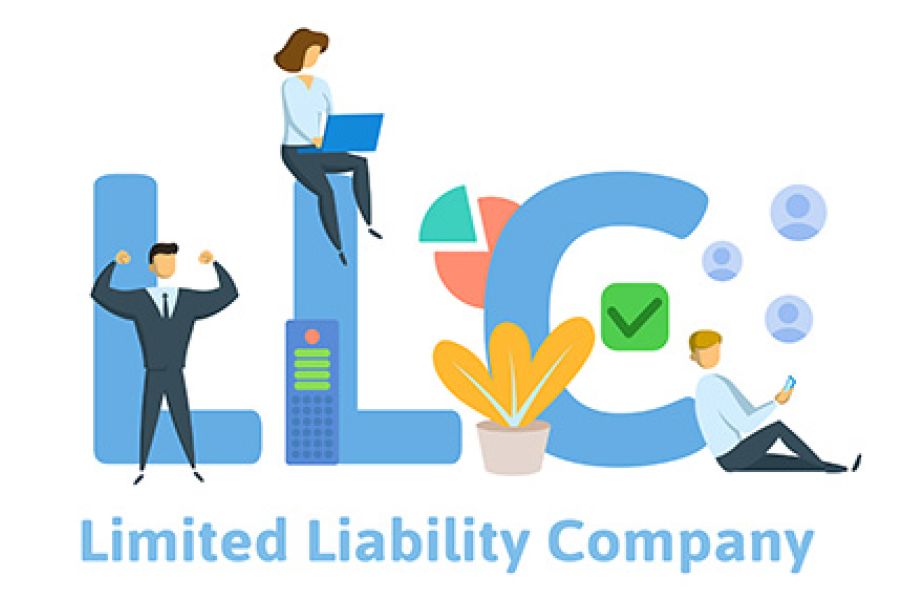Have you recently started a new business? Or are you contemplating starting one? Launching a new venture is a hectic, exciting time. Before you even open the doors, you generally have to spend a lot of money on new business expenses. You may have to train workers and pay for rent, utilities, marketing and more. Entrepreneurs are often unaware that many expenses incurred by start-ups can’t be deducted right away. The way you handle some of your initial expenses can make a large difference in your tax bill. Key points on how new business expenses are handled When starting or planning a new enterprise, keep these factors in mind: Start-up costs include those incurred or paid while creating an active trade or business — or investigating the creation...

In the course of operating your business, you probably spend time and money “wining and dining” current or potential customers, vendors and employees. Is deducting business meals still possible? The rules changed under the Tax Cuts and Jobs Act (TCJA), but you can still claim some valuable write-offs. No more entertainment deductions One of the biggest changes is that you can no longer deduct most business-related entertainment expenses. Beginning in 2018, the TCJA disallows deductions for entertainment expenses, including those for sports events, theater productions, golf outings and fishing trips. Deducting business meals still allowed You can still deduct 50% of the cost of food and beverages for meals conducted with business associates. However, you need to follow three basic rules in order to prove that your expenses are...
Taxation of divorcing business owners add complications to an already stressful time. Your marital property will include all or part of your business ownership interest . . . one of your biggest personal assets. Transferring property tax-free You and your ex-spouse can generally divide most assets, without any federal income or gift tax consequences. When an asset falls under this tax-free transfer rule, the spouse who receives the asset takes over its existing tax basis (for tax gain or loss purposes). The receiving spouse also takes over the asset's existing holding period (for short-term or long-term holding period purposes). Example Under the terms of your divorce agreement, you give your house to your spouse in exchange for keeping 100% of the stock in your business. That asset swap would...
Merger and acquisition (M&A) activity has been brisk in recent years. Is your business is considering merging with or acquiring another business? If so, it’s important to understand how the transaction will be taxed under current law. Stocks vs. assets From a tax standpoint, there are basically two ways to structure a transaction: 1. Stock (or ownership interest). A buyer can directly purchase a seller’s ownership interest if the target business is operated as a C or S corporation, a partnership, or a limited liability company (LLC) that’s treated as a partnership for tax purposes. The now-permanent 21% corporate federal income tax rate under the Tax Cuts and Jobs Act (TCJA) makes buying the stock of a C corporation somewhat more attractive. Why? The corporation will pay less tax...
The Tax Cuts and Jobs Act created a new federal tax credit for employers that provide qualified paid family and medical leave to their employees. It’s subject to numerous rules and restrictions and the credit is only available for two tax years — those beginning between January 1, 2018, and December 31, 2019. However, it may be worthwhile for some businesses. The value of the credit An eligible employer can claim a credit equal to 12.5% of wages paid to qualifying employees who are on family and medical leave, if the leave payments are at least 50% of the normal wages paid to them. For each 1% increase over 50%, the credit rate increases by 0.25%, up to a maximum credit rate of 25%. An eligible employee is...
If you own a business and don’t have a tax-advantaged retirement plan, it’s not too late to establish one and reduce your 2018 tax bill. A Simplified Employee Pension (SEP) can still be set up for 2018, and you can make contributions to it that you can deduct on your 2018 income tax return. Contribution deadlines A SEP can be set up as late as the due date (including extensions) of your income tax return for the tax year for which the SEP is to first apply. That means you can establish a SEP for 2018 in 2019 as long as you do it before your 2018 return filing deadline. You have until the same deadline to make 2018 contributions and still claim a potentially substantial deduction...
Recent changes to federal tax law and accounting rules could affect whether you decide to lease or buy equipment or other fixed assets. Although there’s no universal “right” choice, many businesses that formerly leased assets are now deciding to buy them. Pros and cons of leasing From a cash flow perspective, leasing can be more attractive than buying. And leasing does provide some tax benefits: Lease payments generally are tax deductible as “ordinary and necessary” business expenses. (Annual deduction limits may apply.) Leasing used to be advantageous from a financial reporting standpoint. But new accounting rules that bring leases to the lessee’s balance sheet go into effect in 2020 for calendar-year private companies. So, lease obligations will show up as liabilities, similar to purchased assets that are financed...
Shakespeare’s words don’t apply just to Julius Caesar; they also apply to calendar-year partnerships, S corporations and limited liability companies (LLCs) treated as partnerships or S corporations for tax purposes. Why? The Ides of March, more commonly known as March 15, is the federal income tax filing deadline for these “pass-through” entities. Not-so-ancient history Until the 2016 tax year, the filing deadline for partnerships was the same as that for individual taxpayers: April 15 (or shortly thereafter if April 15 fell on a weekend or holiday). One of the primary reasons for moving up the partnership filing deadline was to make it easier for owners to file their personal returns by the April filing deadline. After all, partnership (and S corporation) income passes through to the owners....
If you run your business from your home or perform certain functions at home that are related to your business, you might be able to claim a home office deduction against your business income on your 2018 income tax return. There are now two methods for claiming this deduction: the actual expenses method and the simplified method. Basics of the deduction In general, you’ll qualify for a home office deduction if part of your home is used “regularly and exclusively” as your principal place of business. If your home isn’t your principal place of business, you may still be able to deduct home office expenses if 1) you physically meet with patients, clients or customers on your premises, or 2) you use a storage area in your home...
Limited liability company (LLC) members commonly claim that their distributive shares of LLC income — after deducting compensation for services in the form of guaranteed payments — aren’t subject to self-employment (SE) tax. But the IRS has been cracking down on LLC members it claims have under-reported SE income, with some success in court. SE tax background Self-employment income is subject to a 12.4% Social Security tax (up to the wage base) and a 2.9% Medicare tax. Generally, if you’re a member of a partnership — including an LLC taxed as a partnership — that conducts a trade or business, you’re considered self-employed. General partners pay SE tax on all their business income from the partnership, whether it’s distributed or not. Limited partners, however, are subject to SE...











